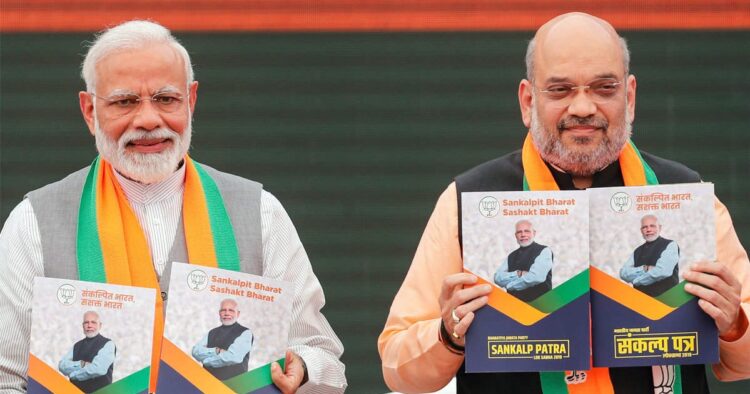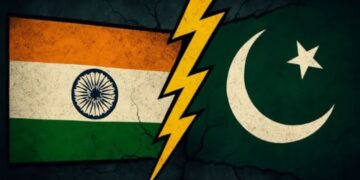Prime Minister Narendra Modi and key leaders of the Bharatiya Janata Party (BJP) revealed their vision for Bharat’s future through the release of the Lok Sabha election manifesto, termed ‘Sankalp Patra’. While outlining their plans, the BJP emphasized several promises aimed at the nation’s development and welfare, steering clear of purely political rhetoric.
Among the notable pledges, the BJP vows to implement a Uniform Civil Code, aiming to ensure equal rights for women by drawing upon traditional values and modern needs. This step aligns with Article 44 of the Constitution, reflecting the party’s commitment to societal harmony and gender equality.
Simultaneous elections across the nation emerge as a priority, underlining the BJP’s aim to streamline governance and reduce electoral expenses. The party has formed a High Powered Committee to examine the feasibility of this proposal, demonstrating its dedication to efficient governance practices.
Infrastructure development along India’s borders with China, Pakistan, and Myanmar takes center stage in the manifesto. The BJP promises to enhance security measures through technological solutions, such as smart fencing, to fortify these crucial areas and safeguard national interests.
Citizenship Amendment Act implementation remains on the agenda, with the BJP affirming its commitment to granting citizenship to eligible individuals. This move reflects the party’s stance on addressing humanitarian concerns while upholding national security interests.
Education and healthcare feature prominently in the BJP’s agenda, with promises to establish new premier institutions like IITs, IIMs, and AIIMS. Additionally, the party pledges to strengthen existing educational and healthcare infrastructure through focused funding and capacity building initiatives.
Economic prosperity and social welfare initiatives are integral to the BJP’s vision. The party aims to elevate India to the rank of the third-largest economic power within a decade, citing its past achievements and future strategies as catalysts for growth.
In a bid to alleviate poverty and promote social equity, the BJP pledges to provide free ration to 80 crore citizens for the next five years under the PM Garib Kalyan Anna Yojana. Furthermore, initiatives like free electricity for poor households and empowering rural women economically underscore the party’s commitment to inclusive development.
Healthcare reforms take precedence, with promises to expand coverage under schemes like Ayushman Bharat to ensure quality healthcare access for senior citizens. Additionally, the BJP vows to focus on preventive healthcare measures, targeting prevalent issues like anaemia and cancer among women.
Agricultural reforms form a cornerstone of the BJP’s agenda, with plans to increase MSP on crops and launch initiatives like the Krishi Infrastructure Mission and Krishi Satellite. These endeavors aim to modernize agricultural practices, enhance productivity, and empower farmers economically.
Inclusivity is emphasized through promises to include auto, taxi, and truck drivers in social security schemes, demonstrating the BJP’s commitment to the welfare of all sections of society. Similarly, initiatives like ONDC for small traders and MSMEs underscore the party’s efforts to leverage technology for economic empowerment.
In summary, the BJP’s Sankalp Patra encapsulates a comprehensive vision for Bharat’s future, focusing on development, welfare, and inclusive growth. By prioritizing key sectors like education, healthcare, agriculture, and infrastructure, the party aims to propel the nation towards prosperity and progress, transcending mere political rhetoric to address the real needs of its citizens.

















Comments